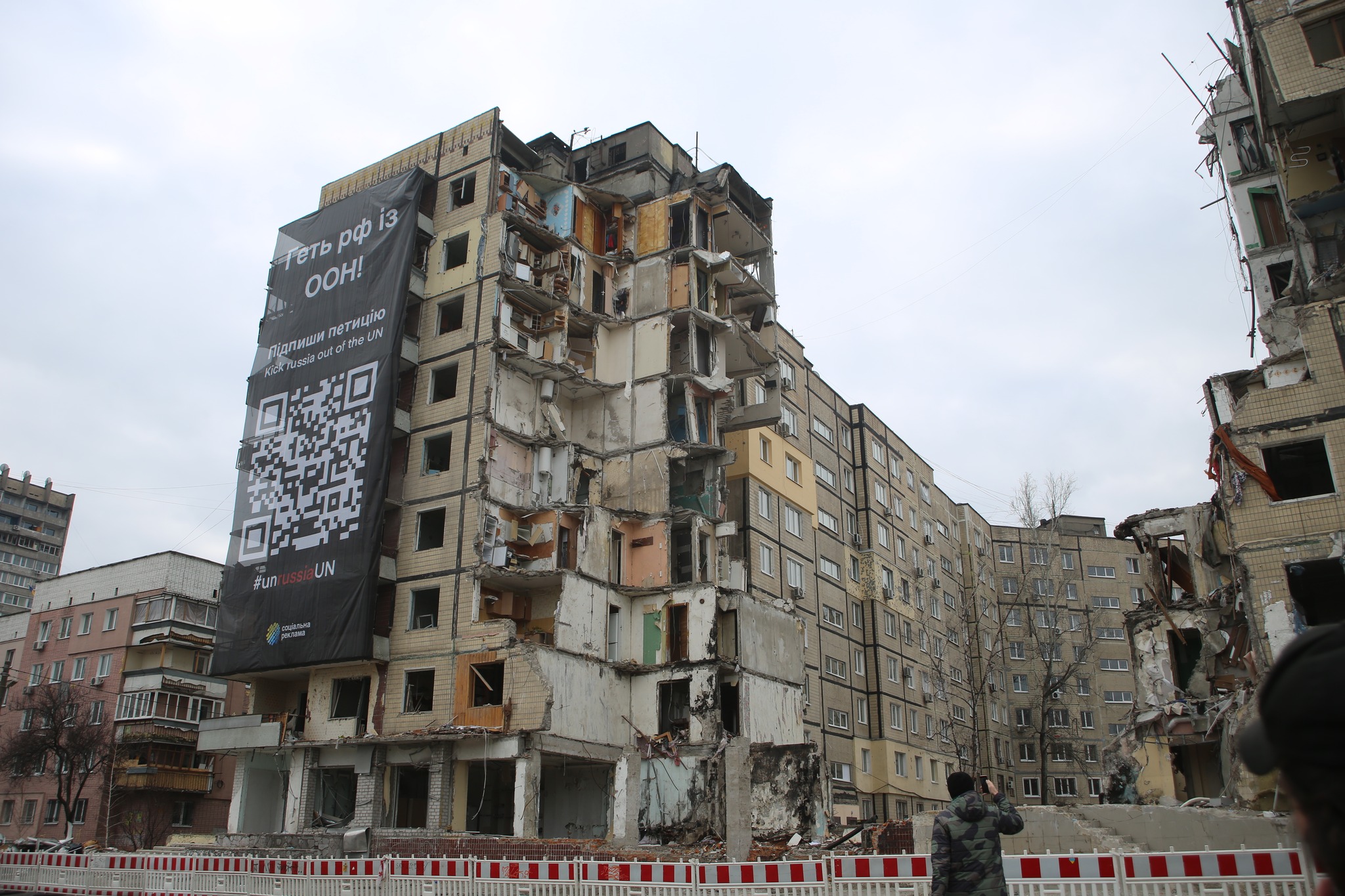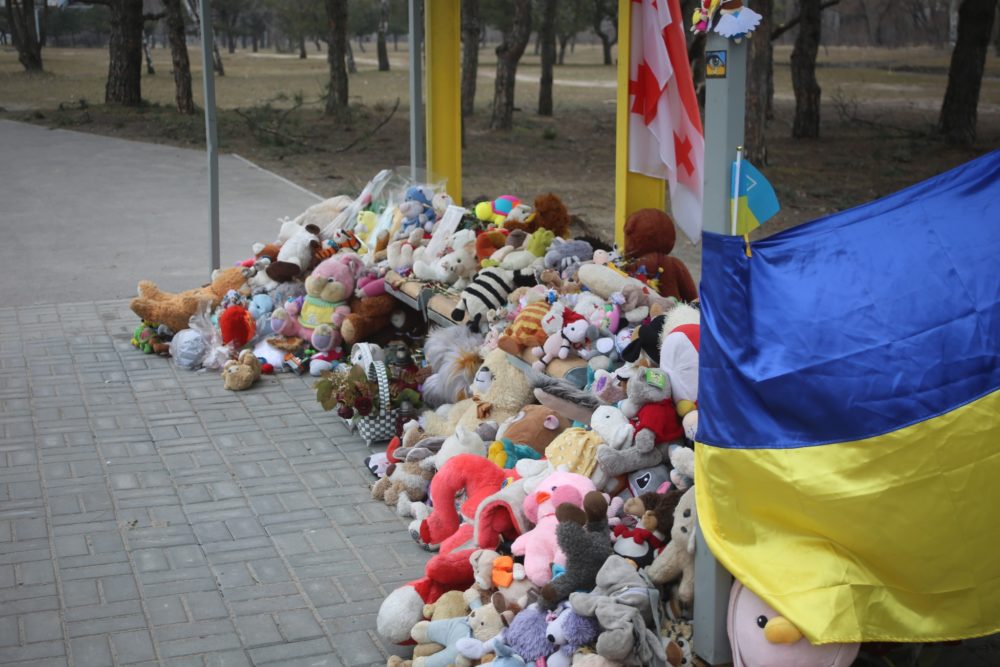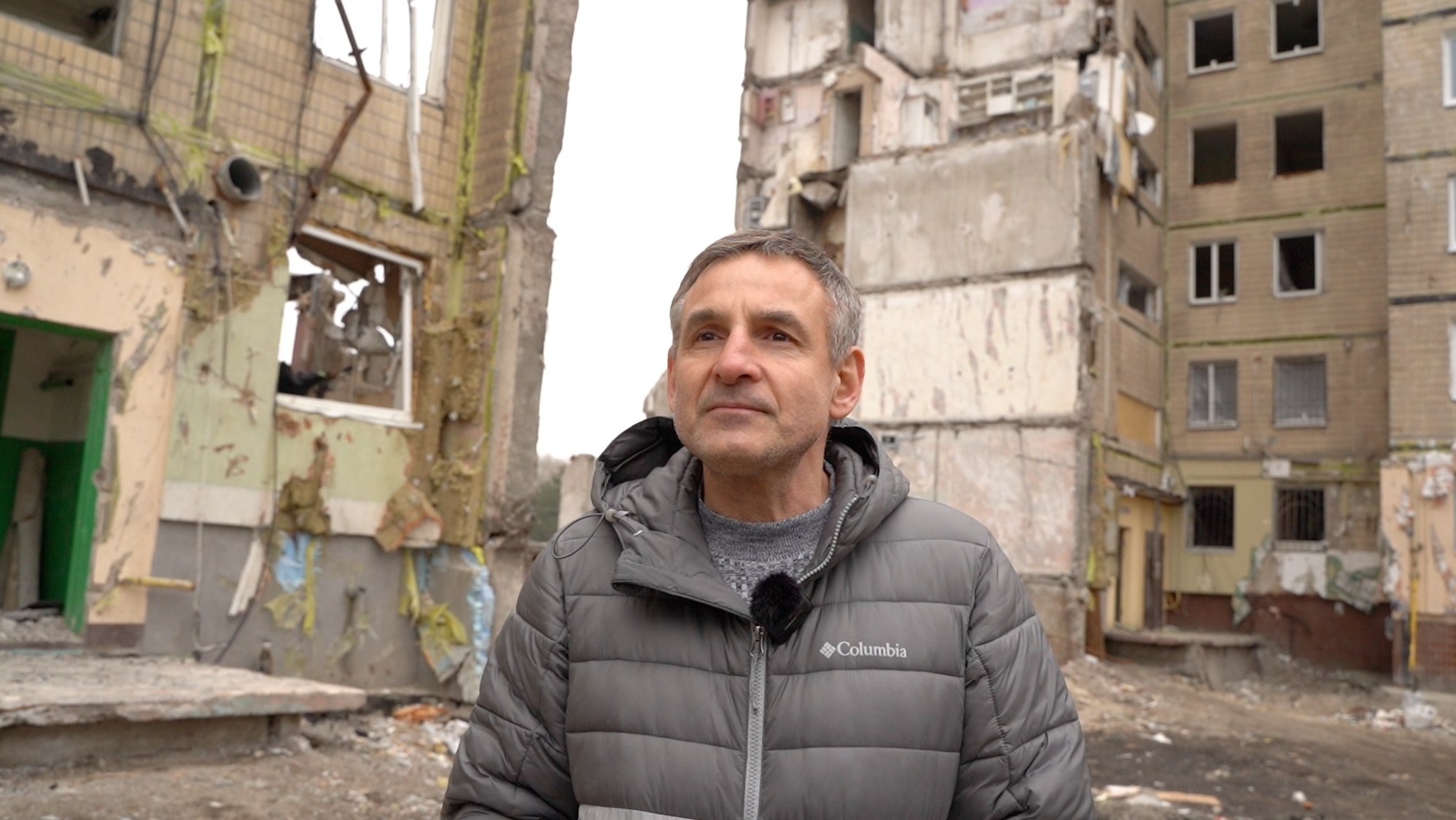For Serhiy, 14 January started as an ordinary morning. With his 16-year-old son, the man decided to visit their friends who live nearby. At approximately 3:25 pm Serhiy was leaving, saying goodbye to his wife who stayed at home because she was not feeling well that day.
The father and son had only made it a few dozen meters from the building when the explosion rang out. “It was like the ground was shifting beneath our feet, like on a trampoline.” The yard was filled with smoke, with wreckage flying through the air.
At the moment of the explosion, Serhiy’s wife was standing near the window watching her close ones leave. The shock wave propelled her and the window frame four meters away. She lost consciousness.

Serhiy sent his son to shelter and hurried to his wife. He tried to call her. Only after five long minutes did she reply. As Serhiy approached the entrance to help his wife out, the parts of the building hit by the missile loudly collapsed. In complete darkness due to the smoke they went out together.
The woman had an open brain injury. Blood was streaming from her temporal artery. A stranger on the street tried to bandage her wound, but blood continued to flow like a fountain. Several ambulances were already near the road, and near each one were long queues. Fortunately, Serhiy saw another ambulance on the road and stopped it. The ambulance took his wife to a reanimation theater.
Serhiy waited for three hours to hear that his wife would live. The doctors told him that they had not managed to save several people with the same wounds because it was already too late. “You were lucky to be in close proximity to your wife, and to see that ambulance in the road,” a doctor said to Serhiy.
The next five days passed almost without sleep. Every day Serhiy and his son helped to clear the rubble searching for people at the site and visited his wife in the hospital. “It was impossible to fall asleep for the first two days, we slept only two or three hours for the next five days.” Clearing proceeded from the upper floor downwards. “On the fifth day, hopes of finding anyone on the lower floors were fading away.”

As Serhiy remembers 15-year-old Mariya – a close friend of his family and son – he starts to cry. At the moment of the explosion, she was right under an arch walking to a yard. A shock wave threw her into the air and the girl died on the spot. She and her family had moved to Dnipro after their home town Nikopol was occupied by Russia.
“The situation keeps reminding me of the people I lost. It's tough to cope with it because such moments in life leave an indelible mark, and I'm not sure how it will affect me in the future,” Serhiy says.
“The war does not end with this explosion”
Serhiy’s mother has been living under occupation for a year. When there was still a chance to evacuate her, she lay in a hospital with heart disease. His father died under occupation in August 2022: at that time it was still possible to bring his body to Dnipro to bury him. “Now evacuation is incredibly difficult, and we're waiting and hoping for victory and an opportunity to reunite. People who are there also lose hope because of a year of living under occupation, with all the violence, laws, and rules”
Asked if he thinks that the war will be prolonged, Serhiy said that he doesn't think about it for long. “I can only share my thoughts on the fact that the war does not end with this explosion. Recently, there was an explosion in Zaporizhzhia, and what will happen here is unclear. We are of course doing repairs.” Now Serhiy lives at his relatives’ place but he says it cannot last for long.
“Of course, our soldiers, our guys, many of whom are my age, and even friends' children, are brave and courageous. I would like to believe that the war will end. I think that if we were given more weapons by our partners, we would have ended the war a long time ago. Because donating “four tanks a year”, I think, is enough only to keep us afloat. People are dying, and people are mostly breaking down psychologically now because how much longer shall it last? It's already been a year, and what if it's another year and then another? We are adults and can cope somehow, but our children… Children are the most important thing, and how it will all affect them later, that's really hard to say here.”
Serhiy adds that a lot of his acquaintances and friends are now fighting. “Some even were in the French Foreign Legion, and when the war started, they came here to fight. They serve in special forces there. Here they had injuries, lay in the hospital for three months, and then went back to the front.
We have the courage of our people and loyalty to our country, and it gave impetus to other people, so to speak, to reunite. I would like it to stay that way. People have become kinder, more merciful, and more understanding.”
UA153052990000026207735489479. Beneficiary: Khlibtsevych S. Account: 26207735489479. Bank: JSC CB PrivatBank Kyiv, Ukraine. TIN: 2629803775. SWIFT/BIC:
PBANUA2X
Victims of deadliest Russian missile attack still coping with grief
Related:
- “The route to life.” How volunteers secretly rescued 75,000 from a city encircled by Russian troops
- “We joke that if a leg is amputated below the knee it doesn’t count.” Soldiers get advanced prosthetics in Ukraine
- The Novovolynsk miracle: how Russia’s invasion turned a Ukrainian mining town into an uber-volunteer hub
- Businesses fleeing war to west Ukraine find a new life and help the army
- Ukrainian theology professor turned sniper tells how to hunt for Russian invaders
- Whoever could, fled the Russians. They went back to Irpin to save the rest
- Ukraine finally launches domestic ammunition production. How will this impact the war?

